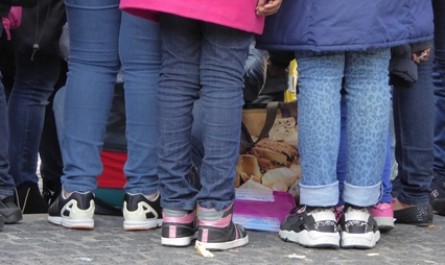Commissioner for Migration, Home Affairs and Citizenship, Dimitris Avramopoulos, and Commissioner for the Security Union, Sir Julian King, hosted the Radicalisation Awareness Network High-Level Conference (RAN HLC) in Luxembourg on 11 October 2018.

During the HLC, participants explored different ways forward to effectively tackle emerging and persisting challenges of radicalisation to violent extremism and terrorism. Two main issues were discussed:
- Children returning – with or without their families – from Daesh-held territory after the collapse of the so-called Islamic State. And, related to this topic, the issue of child refugees, who are fleeing from conflict zones to the EU.
- Rehabilitation of released offenders in view of preventing recidivism of those who served sentences for terrorism-related offences. In addition, participants discussed detainees imprisoned for non-terrorist offences who have been radicalised. The focus was on how to prevent them from committing future acts of violent extremism.
More than 200 participants attended the meeting, including ministers and high-ranking officials from Austria, Bulgaria, Croatia, Finland, Malta, the Netherlands and Romania. Senior officials of almost all Member States and first-line practitioners of RAN Working Groups also attended.
Conclusions
Returnee children
- Creating short- and long-term assessments to better understand children’s needs, vulnerabilities and potential risk factors is crucial to provide adequate care and support to children after their arrival and throughout the entire process of their re-socialisation and reintegration into society;
- Adopting an individual care plan to address the specific needs of child returnees and refugee/migrant children is also essential.
Participants agreed that the use of proper tools to monitor the progress and effectiveness of intervention methods applied to support these children has to be implemented.
RAN will continue to support Member States in 2019 by setting guidelines on how to engage with these children, for example by presenting recommendations of the Returnee Manual. It includes guidelines and recommendations on how to engage with these children.
Rehabilitation of released offenders
Lessons can be learned from the Member States where released offenders do pose problems. Member State authorities can prepare themselves and develop support and monitoring programmes preceding the forthcoming release of (former) extremists after detention. Special intervention units might be necessary but the importance of prevent work was stressed in the discussion above all. First-line practitioners dealing with former detainees should be able to recognise signs of (recurring) radicalisation. Staying vigilant is key.
- Risks assessments should be applied to terrorist offenders and for radicalised inmates, both during imprisonment and after release. Risk and needs assessments are an effective tool for preparing detainees for rehabilitation and integration, provided that both security risks (e.g. the risk of recidivism) as well as the needs of the individual (e.g. need of support while re-entering the community) are captured in such an assessment equally.
- Families and communities should be more involved in the reintegration process. To address the difficulties, they also need to receive guidance and training.
- A media strategy should be put in place concerning the modes of communication when prisoners are released, and politicians should call for a more balanced communication strategy about released offenders.
Concerning both issues, it remains difficult to decide how to address the role and responsibility of independent media. There is a need for protecting these children, instead of stigmatising them, to avoid future risks.
It was noted that dissemination of knowledge through the right forms of education and training can provide specific groups with the confidence they need, such as teachers dealing with children and prison and probation officers dealing with prisoners. Both topics will continue to be explored within the RAN activities in 2019.
An ex post paper will be published in our papers’ section, watch this space.
Source: RAN Update december 2018.




